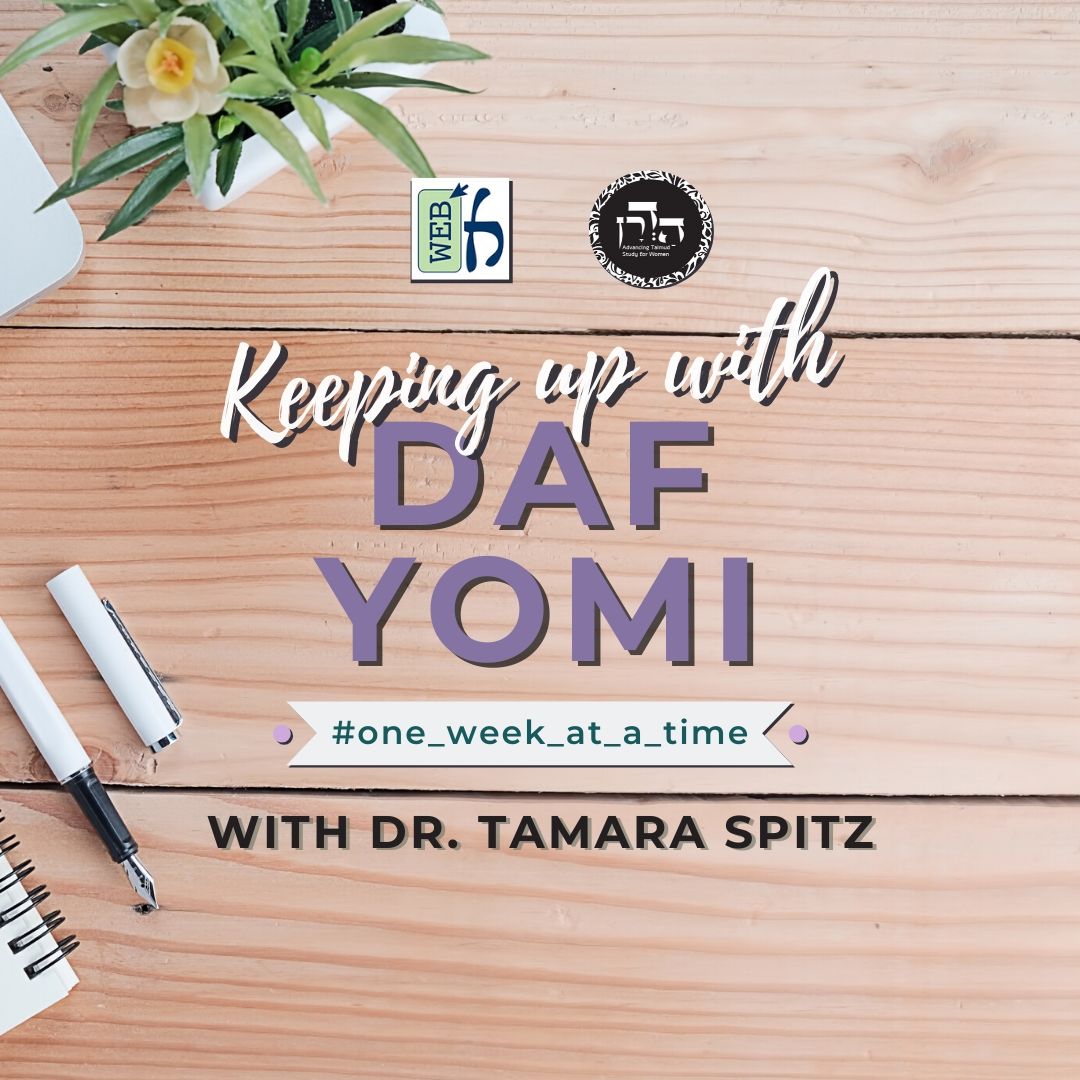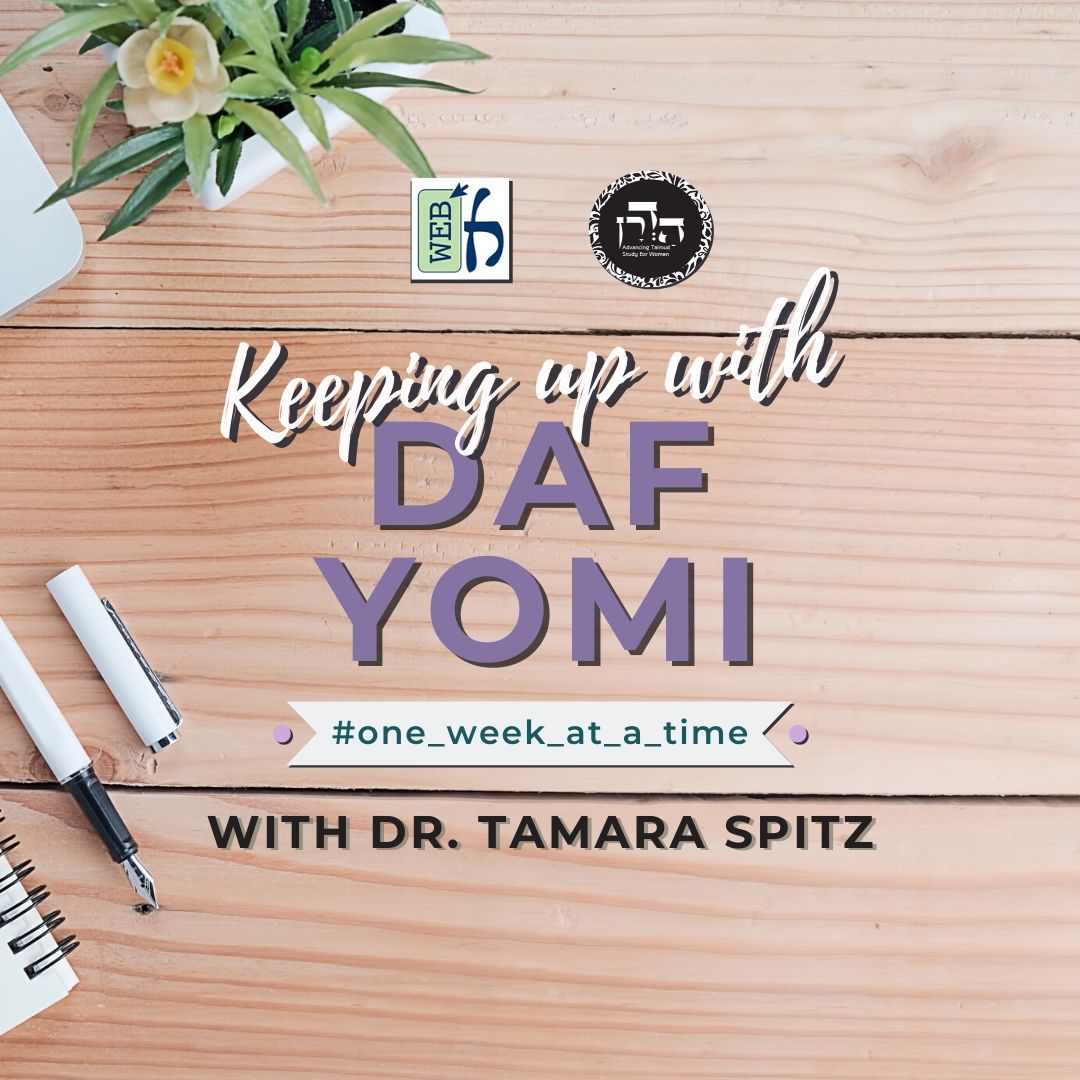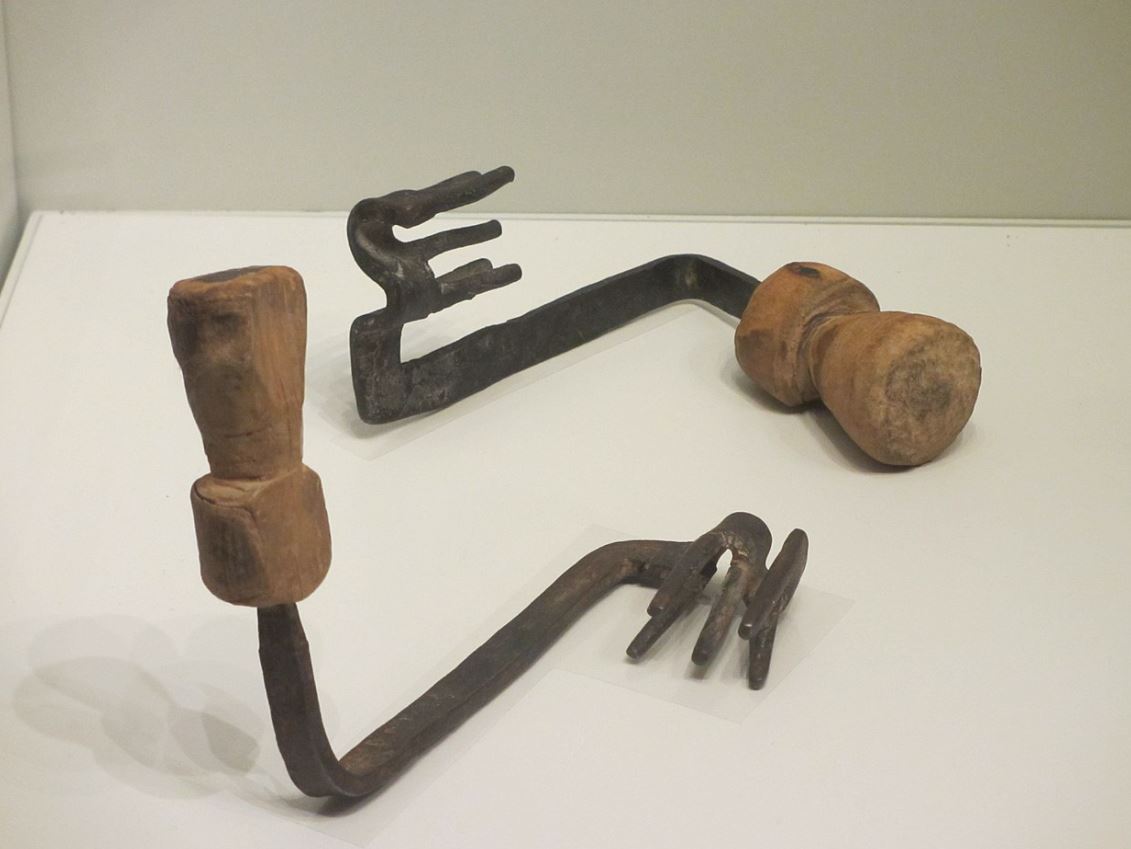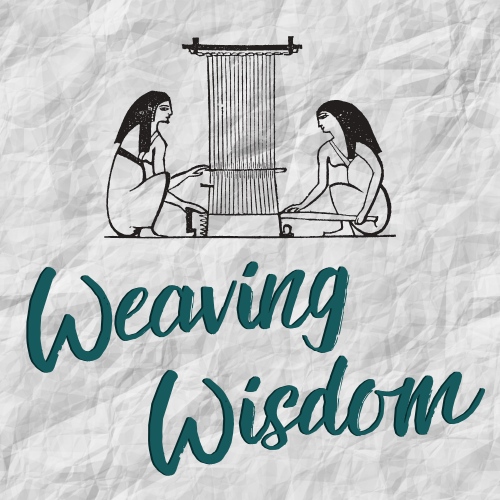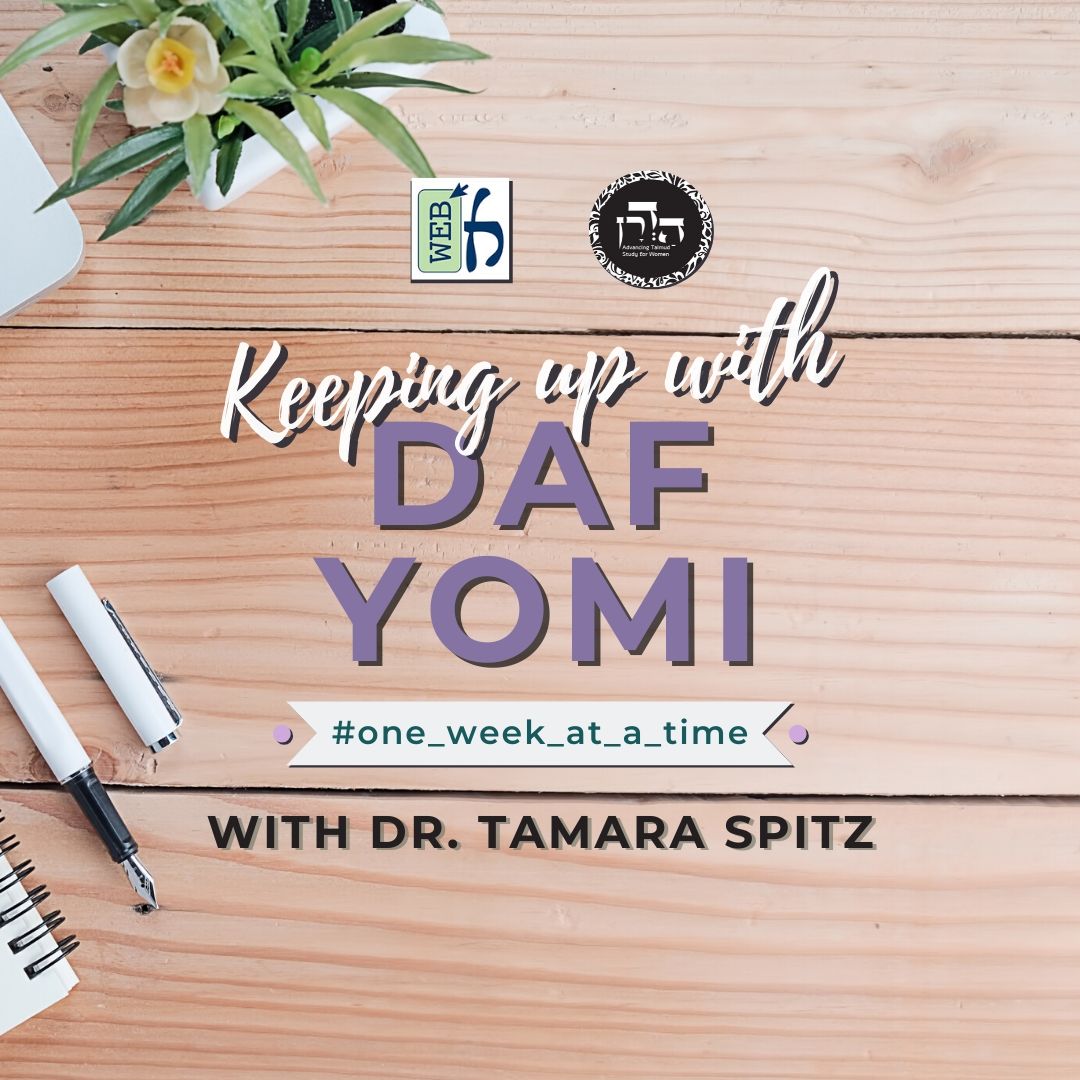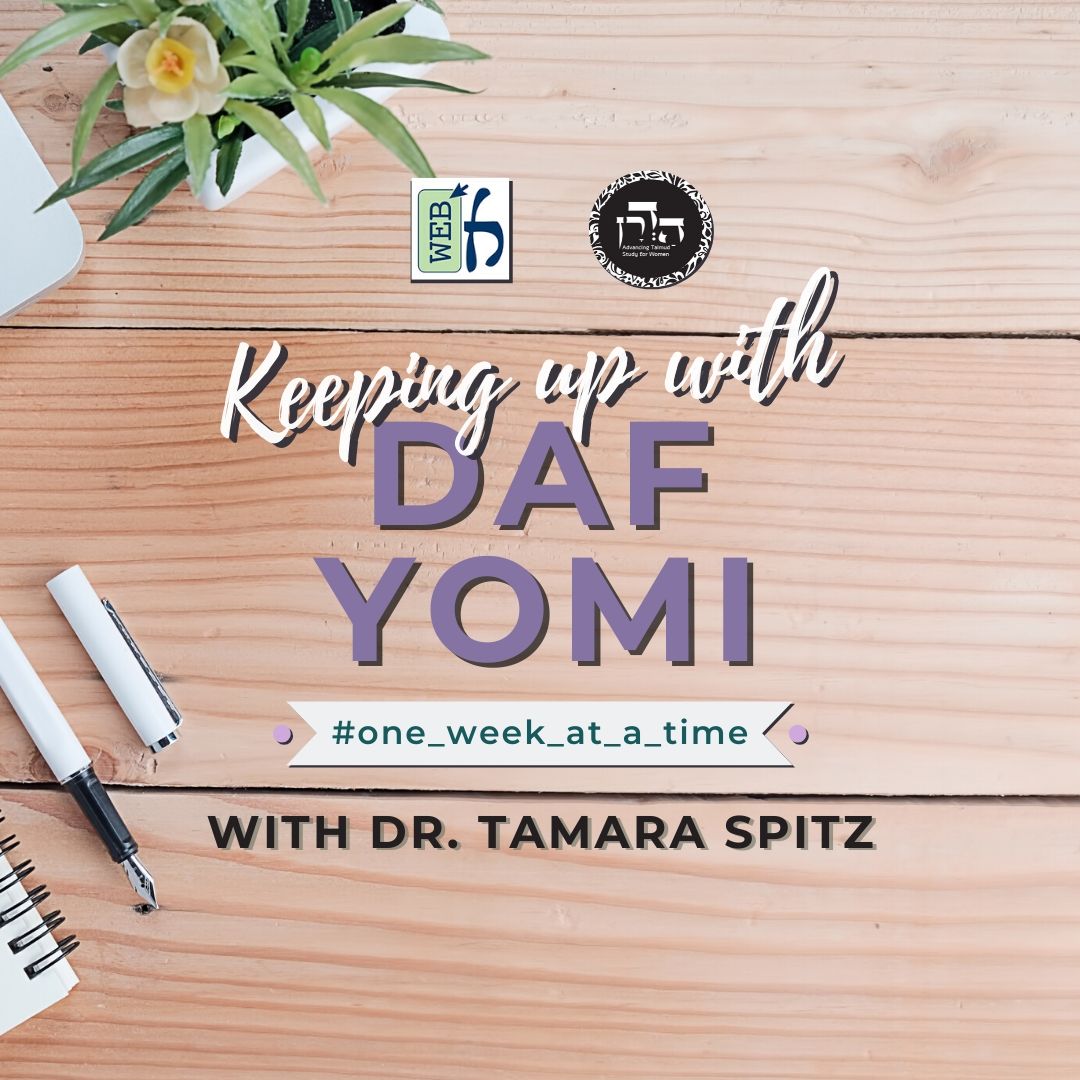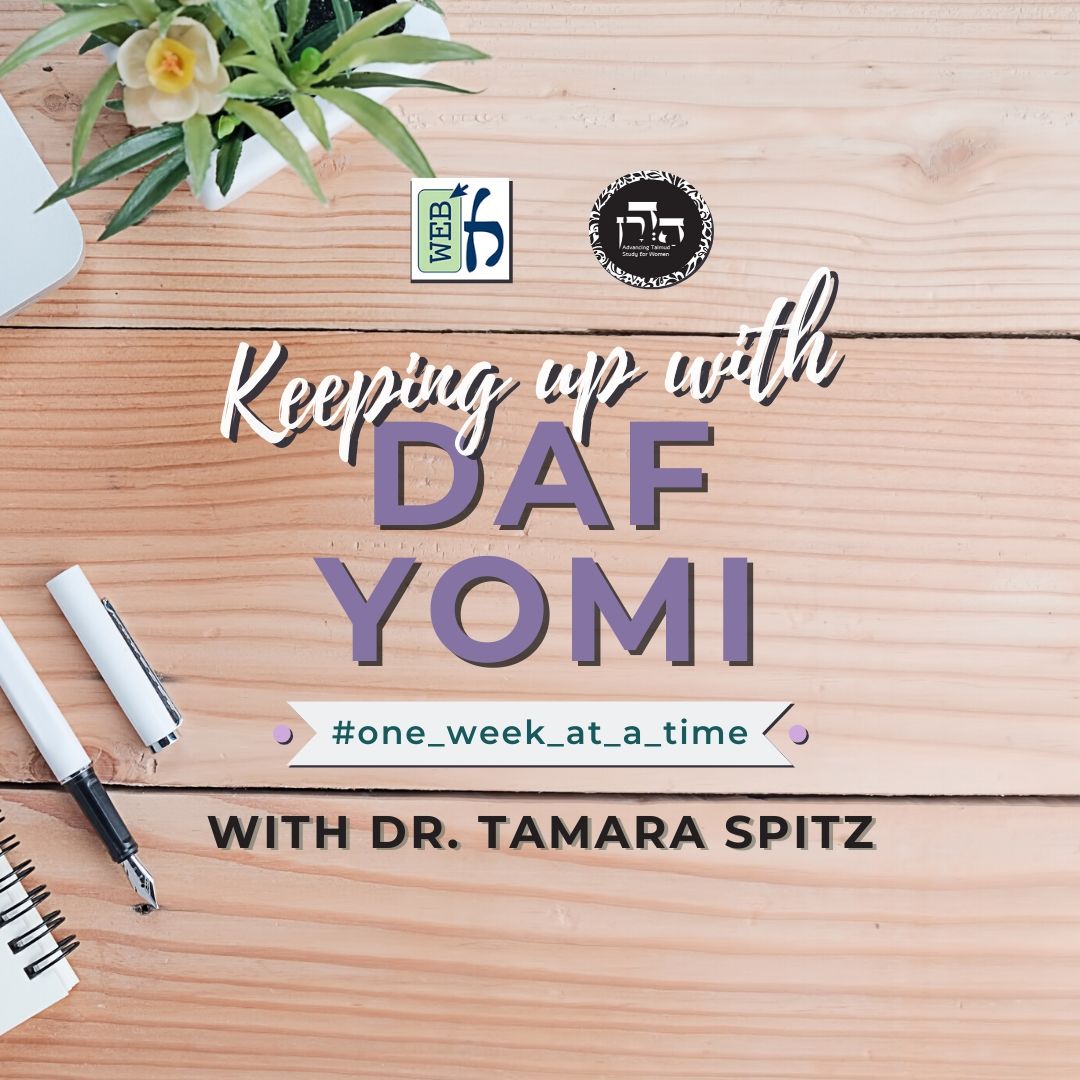Eruvin 29
הָהוּא, בִּבְשִׁיל וְלָא בְּשִׁיל.
The Gemara answers: That is referring to a beet that was only partially cooked, which is dangerous.
אִיכָּא דְּאָמְרִי, אָמַר רַב הַמְנוּנָא: אֵין מְעָרְבִין בִּתְרָדִין חַיִּין, דְּאָמַר רַב חִסְדָּא: סִילְקָא חַיָּיא קָטֵיל גַּבְרָא חַיָּיא. וְהָא קָא חָזֵינַן דְּקָא אָכְלִי וְלָא מָיְיתִי? הָתָם בִּבְשִׁיל וְלָא בְּשִׁיל.
There are some who say that Rav Hamnuna said: One may not establish an eiruv with raw beets, as Rav Ḥisda said: Raw beet kills a healthy person. The Gemara asks: Don’t we see people eating it and they do not die? The Gemara answers: There, it is referring to a beet that was only partially cooked, which is dangerous.
אָמַר רַב חִסְדָּא: תַּבְשִׁיל שֶׁל תְּרָדִין יָפֶה לַלֵּב וְטוֹב לָעֵינַיִם, וְכׇל שֶׁכֵּן לִבְנֵי מֵעַיִים. אָמַר אַבָּיֵי: וְהוּא דְּיָתֵיב אַבֵּי תָפֵי וְעָבֵיד תּוֹךְ תּוֹךְ.
Rav Ḥisda said: A cooked dish of beets is beneficial for the heart, good for the eyes, and all the more so beneficial for the intestines. Abaye said: That is specifically when the dish sits on the stove and makes a tukh tukh sound, i.e., it is cooked thoroughly enough to produce a boiling sound.
אָמַר רָבָא: הֲרֵינִי כְּבֶן עַזַּאי בְּשׁוּקֵי טְבֶרְיָא. אֲמַר לֵיהּ הָהוּא מֵרַבָּנַן לְרָבָא: תַּפּוּחִים בְּכַמָּה? אֲמַר לֵיהּ: וְכִי מְעָרְבִין בְּתַפּוּחִים?
Rava once said when he was in an especially good mood: Behold, I am like the intellectually sharp ben Azzai, who would regularly expound in the markets of Tiberias. I, too, am ready to answer any question posed to me. One of the Sages said to Rava: How many apples are needed to establish an eiruv? Rava said to him: Does one establish an eiruv with apples?
וְלָא? וְהָתְנַן: כׇּל הָאוֹכָלִין מִצְטָרְפִין לִפְסוֹל אֶת הַגְּוִויָּה בַּחֲצִי פְרָס, וּבִמְזוֹן שְׁתֵּי סְעוּדוֹת לְעֵירוּב, וּכְבֵיצָה לְטַמֵּא טוּמְאַת אוֹכָלִים!
The other Sage responded: And is it not permissible to establish an eiruv with them? Didn’t we learn in a mishna: All foods combine to disqualify the body of a priest who eats half of a half-loaf of ritually impure food, and to complete the measure of food required for two meals for the purpose of an eiruv, and to complete the measure of an egg-bulk required for a food to be able to contract the ritual impurity of foods? An apple is a kind of food, so it should be included in the items that may be used to establish an eiruv.
וְהַאי מַאי תְּיוּבְתָּא? אִילֵּימָא מִשּׁוּם דְּקָתָנֵי ״כׇּל הָאוֹכָלִין״, וְהָנֵי בְּנֵי אֲכִילָה נִינְהוּ — וְהָאָמַר רַבִּי יוֹחָנָן: אֵין לְמֵדִין מִן הַכְּלָלוֹת וַאֲפִילּוּ בִּמְקוֹם שֶׁנֶּאֱמַר בּוֹ ״חוּץ״!
The Gemara asks: And what is the refutation? If you say it is because it was taught using the term all foods, and these apples are fit for eating, how can an objection be raised from such a general term? Didn’t Rabbi Yoḥanan already say: One may not learn from general statements using the word all, even in a place where it says except, since no rule exhausts all cases?
אֶלָּא מִשּׁוּם דְּקָתָנֵי ״וּבִמְזוֹן שְׁתֵּי סְעוּדוֹת לְעֵירוּב וּכְבֵיצָה לְטַמֵּא טוּמְאַת אוֹכָלִין״. וְהָנֵי נָמֵי בְּנֵי טַמּוֹיֵי טוּמְאַת אוֹכָלִין נִינְהוּ.
Rather, it is because it taught: And all foods combine to complete the measure of food required for two meals for the purpose of an eiruv, and to complete the measure of an egg-bulk to contract the ritual impurity of foods; and these apples are also susceptible to the ritual impurity of foods. Therefore, there is clear proof that the mishna is referring to apples as well.
וְכַמָּה? אָמַר רַב נַחְמָן: תַּפּוּחִים בְּקַב.
Having established that an eiruv may be established with apples, the Gemara returns to the question raised above: How many apples are needed to establish an eiruv? Rav Naḥman said: The minimum measure of apples that must be used for an eiruv is a kav.
מֵיתִיבִי, רַבִּי שִׁמְעוֹן בֶּן אֶלְעָזָר אוֹמֵר: עוּכְלָא תַּבְלִין, וְלִיטְרָא יָרָק, וַעֲשָׂרָה אֱגוֹזִין, וַחֲמִשָּׁה אֲפַרְסְקִין, וּשְׁנֵי רִמּוֹנִים, וְאֶתְרוֹג אֶחָד. וְאָמַר גּוּרְסַק בַּר דָּרֵי מִשְּׁמֵיהּ דְּרַב מְנַשְּׁיָא בַּר שְׂגוּבְלִי מִשְּׁמֵיהּ דְּרַב, וְכֵן לְעֵירוּב. וְהָנֵי נָמֵי לִיהְווֹ כִּי אֲפַרְסְקִין!
The Gemara raises an objection from a baraita: Rabbi Shimon ben Elazar says: When distributing poor man’s tithe, one must give each individual poor person at least an ukla, an eighth of a log, of spices, a liter of vegetables, ten nuts, five peaches, two pomegranates, or one citron, as these are worthy amounts for distribution. And Gursak bar Darei said in the name of Rav Menashya bar Sheguvlei, who said in the name of Rav: And similarly, this is the halakha with regard to an eiruv. Now, it can be asked: These apples should also be like peaches, as they are similar in size, and it should be enough to use five apples for an eiruv.
הָנֵי חֲשִׁיבִי, וְהָנֵי לָא חֲשִׁיבִי.
The Gemara answers that there is a distinction between them: These peaches are important, and therefore five of them are a significant amount, but these apples are not important, and therefore one must use the larger measure of a kav.
אָמַר רַב יוֹסֵף: שְׁרָא לֵיהּ מָרֵיהּ לְרַב מְנַשְּׁיָא בַּר שְׂגוּבְלִי, אֲנָא אַמְרִיתָא נִיהֲלֵיהּ אַמַּתְנִיתִין, וְהוּא אַמְרַהּ אַבָּרַיְיתָא. דִּתְנַן: אֵין פּוֹחֲתִין לְעָנִי בַּגּוֹרֶן מֵחֲצִי קַב חִטִּין וְקַב שְׂעוֹרִין. רַבִּי מֵאִיר אוֹמֵר: חֲצִי קַב שְׂעוֹרִין. וְקַב וַחֲצִי כוּסְּמִין, וְקַב גְּרוֹגְרוֹת אוֹ מָנֶה דְּבֵילָה. רַבִּי עֲקִיבָא אוֹמֵר: פְּרָס. וַחֲצִי לוֹג יַיִן, רַבִּי עֲקִיבָא אוֹמֵר: רְבִיעִית. וּרְבִיעִית שֶׁמֶן, רַבִּי עֲקִיבָא אוֹמֵר: שְׁמִינִית. וּשְׁאָר כׇּל הַפֵּירוֹת, אָמַר אַבָּא שָׁאוּל: כְּדֵי שֶׁיִּמְכְּרֵם וְיִקַּח בָּהֶן מְזוֹן שְׁתֵּי סְעוּדוֹת. וְאָמַר רַב: וְכֵן לְעֵירוּב.
Rav Yosef said: May his Master, God, forgive Rav Menashya bar Sheguvlei, for he erred and caused others to err. I stated before him a ruling in the name of Rav concerning a mishna, and he stated it concerning the baraita, which led to the error. As we learned in a mishna: One may not give a pauper receiving poor man’s tithe at the threshing floor less than half a kav of wheat or less than a kav of barley. Rabbi Meir says: He must be given at least half a kav of barley. Similarly, he must be given no less than a kav and a half of spelt, a kav of dried figs, or a maneh of pressed figs. Rabbi Akiva says: Not a maneh, but half a maneh. He must be given at least half a log of wine. Rabbi Akiva says: Half that amount, a quarter log. And similarly, he must be given a quarter log of oil. Rabbi Akiva says: Half that amount, an eighth of a log. And with regard to all other fruit, Abba Shaul said: He must be given enough to sell them and buy food that suffices for two meals with the proceeds of their sale. And with regard to this mishna, Rav said: And similarly, this is the halakha with regard to an eiruv.
וּמַאי אוּלְמֵיהּ דְּהַאי מֵהָךְ? אִילֵּימָא מִשּׁוּם דְּקָא תָּנֵי בְּהָךְ תַּבְלִין, וְתַבְלִין לָאו בְּנֵי אֲכִילָה נִינְהוּ — אַטּוּ הָכָא מִי לָא קָתָנֵי חִטִּין וּשְׂעוֹרִין, וְלָאו בְּנֵי אֲכִילָה נִינְהוּ!
The Gemara poses a question with regard to Rav Yosef’s harsh reaction to Rav Menashya bar Sheguvlei’s statement: What is the strength of this over that? The mishna and baraita seem to share the same content, so why should Rav’s ruling be more applicable to one than the other? If you say it is because the halakha with regard to spices was also taught in this baraita, and spices are not fit for eating on their own but only when added as a flavoring to other foods, and therefore Rav could not have been referring to the baraita when he said that the same law applies to an eiruv; wasn’t the halakha with regard to wheat and barley taught here in the mishna, and they too are not immediately fit for eating until they are processed further.
אֶלָּא מִשּׁוּם דְּקָתָנֵי חֲצִי לוֹג יַיִן, וְאָמַר רַב: מְעָרְבִין בִּשְׁתֵּי רְבִיעִיּוֹת שֶׁל יַיִן. מִדְּבָעִינַן כּוּלֵּי הַאי — שְׁמַע מִינַּהּ כִּי אָמַר רַב ״וְכֵן לְעֵירוּב״ — אַהָא מַתְנִיתִין קָאָמַר. שְׁמַע מִינַּהּ.
Rather, it is because it was taught in the mishna that one must give half a log of wine. And Rav said: One may establish an eiruv with two-quarters of a log of wine, which is equal to half a log. Since we require so much wine, learn from here that when Rav said: And similarly, this is the halakha with regard to an eiruv, he said it about this mishna and the measures mentioned therein. The Gemara concludes: Indeed, conclude from this that this is the proper understanding of Rav’s statement.
אָמַר מָר: וּבִמְזוֹן שְׁתֵּי סְעוּדוֹת לְעֵירוּב. סָבַר רַב יוֹסֵף לְמֵימַר: עַד דְּאִיכָּא סְעוּדָה מֵהַאי וּסְעוּדָה מֵהַאי. אֲמַר לֵיהּ רַבָּה: אֲפִילּוּ לְמֶחֱצָה לִשְׁלִישׁ וְלִרְבִיעַ.
The Gemara further examines the mishna cited earlier. The Master said: And all foods combine to complete the measure of food required for two meals for the purpose of an eiruv. Rav Yosef thought to say that an eiruv may not be established unless there is a complete meal of this kind of food and a complete meal of that kind of food, meaning that an eiruv may only be established if each meal consists of a single type of food. Rabba said to him: An eiruv may be established with the amount of food required for two meals even if each type of food made up only half, a third, or a quarter of a meal.
גּוּפָא, אָמַר רַב: מְעָרְבִין בִּשְׁתֵּי רְבִיעִיּוֹת שֶׁל יַיִן. וּמִי בָּעִינַן כּוּלֵּי הַאי? וְהָתַנְיָא, רַבִּי שִׁמְעוֹן בֶּן אֶלְעָזָר אוֹמֵר: יַיִן כְּדֵי לֶאֱכוֹל בּוֹ, חוֹמֶץ כְּדֵי לְטַבֵּל בּוֹ, זֵיתִים וּבְצָלִים כְּדֵי לֶאֱכוֹל בָּהֶן שְׁתֵּי סְעוּדוֹת?
The Gemara now examines Rav’s statement itself, which was cited in the course of the previous discussion. Rav said: One may establish an eiruv with two-quarters of a log of wine. The following question may be raised: Do we really need so much? Wasn’t it taught in a baraita that Rabbi Shimon ben Elazar says: The minimal amount of wine required for an eiruv is enough to eat bread with it, i.e., enough to soak the bread in to enable one to eat it? Additionally, the minimal amount of vinegar that may be used to establish an eiruv is enough to dip the food in it, and the minimal amount of olives and onions is enough to eat them together with the bread. All of these quantities are calculated on the basis of two meals. This baraita clearly indicates that an eiruv may be established with much less than two-quarters of a log of wine.
הָתָם בְּחַמְרָא מְבַשְּׁלָא.
The Gemara answers: There, the baraita is referring to cooked wine, which is very strong, and therefore even a small amount suffices.
אָמַר מָר: חוֹמֶץ כְּדֵי לְטַבֵּל בּוֹ. אָמַר רַב גִּידֵּל אָמַר רַב: כְּדֵי לְטַבֵּל בּוֹ מְזוֹן שְׁתֵּי סְעוּדוֹת שֶׁל יָרָק. אִיכָּא דְּאָמְרִי, אָמַר רַב גִּידֵּל אָמַר רַב: יָרָק הַנֶּאֱכָל בִּשְׁתֵּי סְעוּדוֹת.
The Master said in the baraita that the minimal amount of vinegar that may be used for an eiruv is enough to dip food in it. Rav Giddel said that Rav said: Enough to dip in it the food of two meals consisting of vegetables. Some say that Rav Giddel said that Rav said: Enough to dip in it the vegetables that are eaten in two ordinary meals, which is less than the amount consumed in two meals consisting entirely of vegetables.
אָמַר מָר: זֵיתִים וּבְצָלִים כְּדֵי לֶאֱכוֹל בָּהֶן מְזוֹן שְׁתֵּי סְעוּדוֹת. וּבִבְצָלִים מִי מְעָרְבִין? וְהָתַנְיָא: אָמַר רַבִּי שִׁמְעוֹן בֶּן אֶלְעָזָר: פַּעַם אַחַת שָׁבַת רַבִּי מֵאִיר בְּעַרְדִּיסְקָא, וּבָא אָדָם אֶחָד לְפָנָיו, אָמַר לוֹ: רַבִּי, עֵירַבְתִּי בִּבְצָלִים לְטִיבְעִין, וְהוֹשִׁיבוֹ רַבִּי מֵאִיר בְּאַרְבַּע אַמּוֹת שֶׁלּוֹ.
The Master also said that the minimum measure of olives and onions that may be used for an eiruv is enough to eat them with the food of two meals. The Gemara asks: May one establish an eiruv with onions? Wasn’t it taught in a baraita that Rabbi Shimon ben Elazar said: Rabbi Meir once spent Shabbat in the town of Ardiska, and a certain person came before him and said to him: Rabbi, I made an eiruv of Shabbat borders [eiruv teḥumin] with onions, so that I might walk to the town of Tiv’in. Ardiska was located between the man’s eiruv and his destination of Tiv’in, which was beyond his Shabbat limit as measured from his hometown. And Rabbi Meir made him remain within his four cubits. He forbade him to leave his four cubits, as he held that an eiruv made with onions is not an eiruv, and therefore the person had left his Shabbat limit without an eiruv teḥumin.
לָא קַשְׁיָא: הָא בְּעָלִים, הָא בְּאִימָּהוֹת. דְּתַנְיָא: אָכַל בָּצָל וְהִשְׁכִּים וּמֵת, אֵין אוֹמְרִין מִמָּה מֵת. וְאָמַר שְׁמוּאֵל: לֹא שָׁנוּ אֶלָּא בֶּעָלִים, אֲבָל בְּאִימָּהוֹת — לֵית לַן בַּהּ. וּבְעָלִין נָמֵי לָא אֲמַרַן אֶלָּא
The Gemara answers: This is not difficult. This ruling, which states that onions may not be used for an eiruv, is referring to onion leaves, which are harmful; whereas that ruling, which states that onions may be used for an eiruv, is referring to onion bulbs, which are edible. As it was taught in a baraita: If one ate an onion and died early the next morning, we need not ask from what he died, as his death was certainly caused by the onion. And Shmuel said: They only taught this with regard to the leaves; but with regard to onion bulbs, we have no problem with it. And even with regard to the leaves, we only stated this concern
דְּלָא אִבְּצִיל זִירְתָּא, אֲבָל אִבְּצִיל זִירְתָּא — לֵית לַן בַּהּ.
in a case where the bulb has not grown to the size of a span, the distance between the thumb and the little finger of a hand that is spread apart, because at that stage the leaves are very toxic; however, if it has grown to the size of a span, we have no problem with it.
אָמַר רַב פָּפָּא: לָא אֲמַרַן אֶלָּא דְּלָא אִישְׁתִּי שִׁיכְרָא, אֲבָל אִישְׁתִּי שִׁיכְרָא לֵית לַן בַּהּ.
Rav Pappa said: We only stated this concern about eating onion leaves in a case where one did not drink beer afterward; however, if he drank beer afterward, we have no problem with it.
תָּנוּ רַבָּנַן: לֹא יֹאכַל אָדָם בָּצָל, מִפְּנֵי נָחָשׁ שֶׁבּוֹ. וּמַעֲשֶׂה בְּרַבִּי חֲנִינָא שֶׁאָכַל חֲצִי בָצָל וַחֲצִי נָחָשׁ שֶׁבּוֹ וְחָלָה וְנָטָה לָמוּת, וּבִקְּשׁוּ חֲבֵירָיו רַחֲמִים עָלָיו וְחָיָה, מִפְּנֵי שֶׁהַשָּׁעָה צְרִיכָה לוֹ.
The Sages taught in a baraita: A person should not eat onion because of the toxins in it. There was an incident with Rabbi Ḥanina, who ate half an onion and half of its toxins, and he fell deathly ill, and his colleagues prayed for mercy for him, and he survived. He was rescued only because the time needed him, as his generation was in need of his teaching, but otherwise he would not have recovered.
אָמַר רַבִּי זֵירָא אָמַר שְׁמוּאֵל: שֵׁכָר מְעָרְבִין בּוֹ, וּפוֹסֵל אֶת הַמִּקְוֶה בִּשְׁלֹשֶׁת לוּגִּין. מַתְקֵיף לַהּ רַב כָּהֲנָא: פְּשִׁיטָא, וְכִי מָה בֵּין זֶה לְמֵי צֶבַע? דִּתְנַן: רַבִּי יוֹסֵי אוֹמֵר: מֵי צֶבַע פּוֹסְלִין אֶת הַמִּקְוֶה בִּשְׁלֹשֶׁת לוּגִּין. אָמְרִי: הָתָם מַיָּא דְצִבְעָא מִיקְּרֵי, הָכָא שִׁיכְרָא אִיקְּרִי.
Rabbi Zeira said that Shmuel said: One may establish an eiruv with beer, and it invalidates a ritual bath with a measure of three log, similar to drawn water. Rav Kahana strongly objects to this: This is obvious, for what is the difference between this and dye-water? As we learned in a mishna that Rabbi Yosei says: Dye-water invalidates a ritual bath with a measure of three log, like regular drawn water. They said: There is a difference between the two cases, as there, the liquid is called dye-water; here, it is called beer. Therefore, it might have been possible to argue that beer is not considered like water at all, in which case it would only invalidate a ritual bath if it changed the color of the water, and so Shmuel’s novel teaching was necessary.
וּבְכַמָּה מְעָרְבִין? סָבַר רַב אַחָא בְּרֵיהּ דְּרַב יוֹסֵף קַמֵּיהּ דְּרַב יוֹסֵף לְמֵימַר: בִּתְרֵין רִבְעֵי שִׁכְרָא, כְּדִתְנַן: הַמּוֹצִיא יַיִן, כְּדֵי מְזִיגַת הַכּוֹס. וְתָנֵי עֲלַהּ: כְּדֵי מְזִיגַת כּוֹס יָפֶה. מַאי כּוֹס יָפֶה? כּוֹס שֶׁל בְּרָכָה. וְאָמַר רַב נַחְמָן אָמַר רַבָּה בַּר אֲבוּהּ: כּוֹס שֶׁל בְּרָכָה צָרִיךְ שֶׁיְּהֵא בּוֹ רוֹבַע רְבִיעִית, כְּדֵי שֶׁיִּמְזְגֶנּוּ וְיַעֲמוֹד עַל רְבִיעִית. וְכִדְרָבָא, דְּאָמַר רָבָא: כֹּל חַמְרָא דְּלָא דָּרֵי עַל חַד תְּלָת מַיָּא — לָאו חַמְרָא הוּא.
The Gemara asks: And how much beer is needed to establish an eiruv? Rav Aḥa, son of Rav Yosef, thought to say before Rav Yosef as follows: Two-quarters of a log of beer. Rav Aḥa’s reasoning is now spelled out in detail. As we learned in a mishna: If one carries out wine on Shabbat from a private domain to a public domain, he is liable if he carries out enough wine for diluting a cup, i.e., enough undiluted wine to fill a cup after it has been diluted with water. And a baraita was taught about this mishna: Enough wine for diluting a fine cup. They inquired: What is meant by a fine cup? They answered: A cup of blessing. And Rav Naḥman said that Rabba bar Avuh said: A cup of blessing must contain a quarter of a quarter-log of wine, so that after one dilutes the wine with water, it amounts to a full quarter-log. And this measure is in accordance with the statement of Rava with regard to the strength of wine, as Rava said: Any wine that is not strong enough to require that it be diluted with three parts water to one part wine is not proper wine.
וְקָתָנֵי סֵיפָא: וּשְׁאָר כׇּל הַמַּשְׁקִין בִּרְבִיעִית, וְכׇל הַשּׁוֹפְכִין בִּרְבִיעִית. מִדְּהָתָם עַל חַד אַרְבַּע — הָכָא נָמֵי עַל חַד אַרְבַּע.
And we learned in the latter clause of the aforementioned mishna: And one is liable for carrying out all other liquids, and similarly all waste water, in the measure of a quarter-log. Now, Rav Aḥa argues as follows: Since there, with respect to liability for carrying on Shabbat, the ratio is one to four, as one is liable for carrying out a quarter of a quarter-log of wine, and one is only liable for carrying out other liquids if one carries out a quarter-log; here, too, with respect to making an eiruv, the ratio of one to four should be maintained. Therefore, since Rav said that two-quarters of a log of wine are required for an eiruv, the minimum amount of beer one may use should be two full log.
וְלָא הִיא, הָתָם הוּא דִּבְצִיר מֵהֲכִי לָא חֲשִׁיב, אֲבָל הָכָא — לָא. דַּעֲבִידִי אִינָשֵׁי דְּשָׁתוּ כָּסָא בְּצַפְרָא וְכָסָא בְּפַנְיָא, וְסָמְכִי עִילָּוַיְהוּ.
The Gemara rejects this argument: And this is not so. There, with regard to carrying on Shabbat, we require four times as much beer as wine because less than that amount, i.e., less than a quarter-log of beer, is insignificant. However, here, with regard to establishing an eiruv, this is not relevant, as it is common for people to drink a cup of beer in the morning and a cup of beer in the evening, and they rely on them as their meals, as beer is satisfying even in such quantities. Therefore, we should require only two-quarters of a log of beer for an eiruv.
תְּמָרִים בְּכַמָּה? אָמַר רַב יוֹסֵף: תְּמָרִים בְּקַב. אָמַר רַב יוֹסֵף: מְנָא אָמֵינָא לַהּ? דְּתַנְיָא: אָכַל גְּרוֹגְרוֹת וְשִׁילֵּם תְּמָרִים — תָּבוֹא עָלָיו בְּרָכָה.
The Gemara asks: How many dates are needed to establish an eiruv? Rav Yosef said: The minimal amount of dates one may use is a kav. Rav Yosef said: From where do I say this halakha? As it was taught in a baraita: If one inadvertently ate dried figs of teruma, and paid dates in compensation, may a blessing come upon him.
הֵיכִי דָמֵי? אִילֵּימָא לְפִי דָמִים, דַּאֲכַל מִינֵּיהּ בְּזוּזָא וְקָא מְשַׁלֵּם לֵיהּ בְּזוּזָא — מַאי ״תָּבֹא עָלָיו בְּרָכָה״? בְּזוּזָא אֲכַל, בְּזוּזָא קָא מְשַׁלֵּם! אֶלָּא לָאו, לְפִי מִדָּה, דַּאֲכַל מִינֵּיהּ גְּרִיוָא דִּגְרוֹגְרוֹת דְּשָׁוְיָא זוּזָא, וְקָא מְשַׁלֵּם לֵיהּ גְּרִיוָא דִתְמָרִים דְּשָׁוֵי אַרְבְּעָה — וְקָתָנֵי: ״תָּבֹא עָלָיו בְּרָכָה״, אַלְמָא: תְּמָרִים עֲדִיפִי.
The Gemara proceeds to clarify this ruling: What are the circumstances of this case? If you say that one paid according to the value of the figs he ate, e.g., he ate a zuz worth of figs and he paid a zuz worth of dates, what is the reason it says: May a blessing come upon him? He ate a zuz and paid a zuz. Rather, is it not that he paid in accordance with the measure of the figs eaten, e.g., that he ate a se’a of dried figs worth one zuz, and he paid a se’a of dates worth four zuz. And it says: May a blessing come upon him. Apparently, dates are superior to dried figs. Accordingly, since we learned above that one may establish an eiruv with a kav of dried figs, a kav of dates should certainly suffice for the purpose of an eiruv.
אֲמַר לֵיהּ אַבָּיֵי: לְעוֹלָם דַּאֲכַל מִינֵּיהּ בְּזוּזָא, וְקָא מְשַׁלֵּם בְּזוּזָא. וּמַאי ״תָּבֹא עָלָיו בְּרָכָה״? דַּאֲכַל מִינֵּיהּ מִידֵּי דְּלָא קָפֵיץ עֲלֵיהּ זָבֵינָא, וְקָא מְשַׁלֵּם לֵיהּ מִידֵּי דְּקָפֵיץ עֲלֵיהּ זָבֵינָא.
Abaye said to Rav Yosef: No proof can be brought from here. It can be argued that he actually ate a zuz worth of figs and he paid a zuz worth of dates. And what is the reason it says: May a blessing come upon him? For he ate something that buyers are not eager to buy, and he paid him something that buyers are eager to buy. Even though they are equal in value, the priest benefits, for it is easier for him to sell dates than to sell dried figs.
שְׁתִיתָא — אָמַר רַב אַחָא בַּר פִּנְחָס: תְּרֵי שַׁרְגּוּשֵׁי. כִּיסָאנֵי — אָמַר אַבָּיֵי: תְּרֵי בוּנֵי דְּפוּמְבְּדִיתָא.
With regard to shetita, a dish made of roasted flour and honey, Rav Aḥa bar Pineḥas said: Two large spoonfuls are needed for an eiruv. With regard to kisanei, a type of roasted grain, Abaye said: Two Pumbeditan bunei, the name of a particular of measurement.
אָמַר אַבָּיֵי, אֲמַרָה לִי אֵם: הָנֵי כִּסָאנֵי מְעַלּוּ לְלִיבָּא, וּמְבַטְּלִי מַחְשְׁבָתָא.
Having mentioned roasted grain, the Gemara tangentially relates that Abaye said: Mother, actually his foster mother, told me: These roasted grains are good for the heart and drive away worrisome thoughts.
וְאָמַר אַבָּיֵי, אֲמַרָה לִי אֵם: הַאי מַאן דְּאִית לֵיהּ חוּלְשָׁא דְּלִיבָּא, לַיְיתֵי בִּישְׂרָא דְּאַטְמָא יַמִּינָא דְּדִיכְרָא, וְלַיְיתֵי כַּבּוּיֵי דְרֵעִיתָא דְּנִיסָן, וְאִי לֵיכָּא כַּבּוּיֵי דְרֵעִיתָא — לַיְיתֵי סוּגְיָינֵי דַעֲרַבְתָּא, וְנִיכַבְּבֵיהּ וְנֵיכוּל, וְנִשְׁתֵּי בָּתְרֵיהּ חַמְרָא מַרְקָא.
And Abaye said: Mother told me about another remedy. One who suffers from weakness of the heart should go and bring the meat of the right thigh of a ram, and also bring the dung of grazing cattle from the month of Nisan, and if there is no cattle dung he should bring willow twigs, and then roast the meat on a fire made with the dung or twigs, and eat it, and drink afterward some diluted wine. This will improve his condition.
אָמַר רַב יְהוּדָה אָמַר שְׁמוּאֵל: כׇּל שֶׁהוּא לִיפְתָּן, כְּדֵי לֶאֱכוֹל בּוֹ. כֹּל שֶׁאֵינוֹ לִיפְתָּן, כְּדֵי לֶאֱכוֹל הֵימֶנּוּ. בָּשָׂר חַי — כְּדֵי לֶאֱכוֹל הֵימֶנּוּ. בָּשָׂר צָלִי, רַבָּה אָמַר: כְּדֵי לֶאֱכוֹל בּוֹ, וְרַב יוֹסֵף אָמַר: כְּדֵי לֶאֱכוֹל הֵימֶנּוּ.
Returning to the matter of quantities of food required for an eiruv, Rav Yehuda said that Shmuel said: The minimum quantity for anything that serves as a relish is enough to eat two meals with it, i.e., enough to serve as a relish for the bread eaten in two meals. And with regard to anything that is not a relish, but rather is a food in its own right, one must use enough to eat two meals of it. The minimum quantity of raw meat is enough to eat two meals of it. Roasted meat is the subject of a dispute: Rabba said: Enough to eat the bread of two meals with it. That is to say, roasted meat is not a food in itself, but rather it serves as relish for other foods. And Rav Yosef said: Enough to eat two meals of it, as it is a food in its own right.
אָמַר רַב יוֹסֵף: מְנָא אָמֵינָא לַהּ — דְּהָנֵי פָּרְסָאֵי אָכְלִי טַבְהָקִי בְּלָא נַהֲמָא! אֲמַר לֵיהּ אַבָּיֵי: וּפָרְסָאֵי הֲווֹ רוּבָּא דְעָלְמָא?! וְהָתְנַן: בִּגְדֵי עֲנִיִּים לַעֲנִיִּים, בִּגְדֵי עֲשִׁירִים לַעֲשִׁירִים.
Rav Yosef said: From where do I say this halakha? For these Persians eat pieces of roasted meat [tabahakki] without bread, which shows that meat itself is a food. Abaye said to him: But are the Persians a majority of the world? The halakha follows the customary practice of most of the world and not that of particular locales. Didn’t we learn the following in a baraita? Clothing of the poor, i.e., pieces of cloth measuring three by three fingerbreadths, contracts impurity when in the possession of any poor people because poor people attach importance even to scraps of cloth of such small size. Clothing of the wealthy measuring at least three by three handbreadths contracts impurity in all cases, whether or not it is owned by the wealthy.



